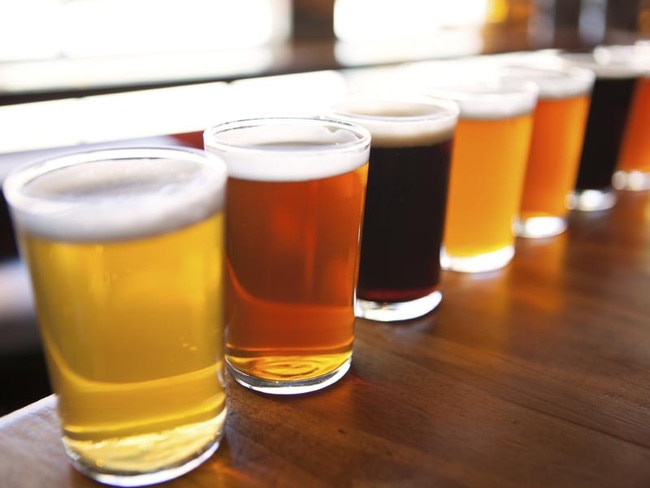A uniform tax on standard drinks most affordable way to ease obesity, says new report
Researchers, including from Queensland, have identified what they say is the most cost-effective, affordable and implementable weapon against Australia’s obesity epidemic.
QLD News
Don't miss out on the headlines from QLD News. Followed categories will be added to My News.
A UNIFORM tax of 84c on standard alcoholic drinks is the most cost-effective, affordable and implementable weapon against Australia’s obesity epidemic, a new report out today reveals.
The release of the Assessing Cost-Effectiveness of Obesity Prevention Policies in Australia (ACE-Obesity Policy) report has sparked calls for Health Minister Steven Miles to make good on a two-year promise to prioritise legislation required to set up the Healthy Futures Commission so that Queensland can better tackle its obesity scourge.
Crisis shows no sign of waning
We’re gonna need a bigger cremator
Oz beats US, UK for life expectancy
Researchers from the University of Queensland were involved in the report, which concluded the best method of attack was the alcohol levy, followed by a tax on sugary drinks and a ban on junk food advertising to kids.
The report is the country’s most comprehensive analysis of interventions
The Australian Medical Association Queensland has been campaigning for a ban on television junk food ads and soft drinks tax for some time now.
“We have been calling on the Health Minister to prioritise the legislation required to set up the Healthy Futures Commission, promised almost two years ago, so that in Queensland we can undertake a strategically thought out whole-of-government response to the obesity crisis rather than the piecemeal strategy we currently have,” AMAQ president Dilip Dhupelia said.
The study was undertaken by researchers from Deakin Health Economics, Deakin University
in collaboration with the Global Obesity Centre (GLOBE), UQ and The George Institute for Global Health.

“Alcohol is high in calories, with a pint of beer almost on par with a chocolate bar, so consumption can have a big impact on daily energy intake,” report co-author Associate Professor Sacks said.
“Currently different types of alcohol are all taxed differently but under a uniform volumetric tax all drinks would be taxed based on alcohol content, meaning a significant price increase for some products,” he said.
Lead author Jaithri Ananthapavan said the release of the ACE-Obesity Policy report was timely, with the Council of Australian Governments (COAG) last month indicating they planned to work towards a national obesity strategy.
“The Senate Select Committee into the Obesity Epidemic in Australia also handed down its findings last week, with key recommendations including a tax on sugary drinks and TV junk food advertising bans, which both rank in the top three of our list of cost-effective interventions,” Ms Ananthapavan said.
Mr Miles said the Government was “working to establish an independent statutory body and new health promotion agency called Health and Wellbeing Queensland, with the aim for new legislation to be in place early next year”.
“Queensland Health is also investing over $45 million in preventive health programs in 2018-19 to help Queenslanders improve their health and wellbeing,” he said.
“That includes healthy lifestyle programs such as Deadly Choices, the Heart Foundation Walking Program and the 10,000 Steps Program, and the launch of a new campaign, Find Your Happy Healthy.”


